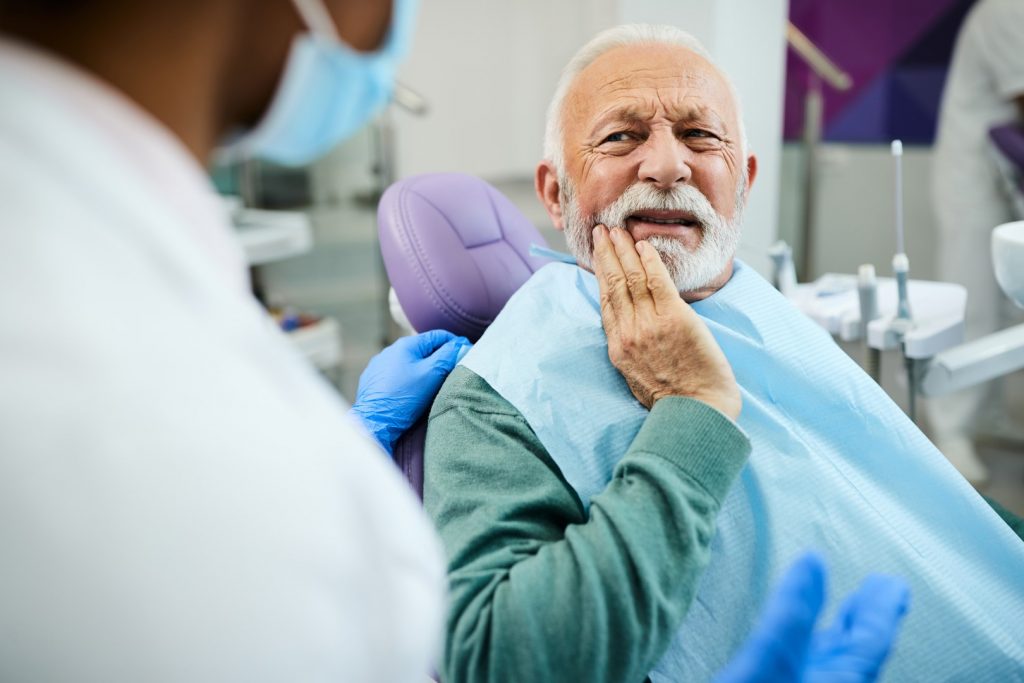Information Library
Start Reading
Do you know what the most common oral healthcare problem is? Here are two hints: It affects one in four adults, and it’s not cavities.
The surprising answer is dry mouth. Quenching dry mouth is important for comfort and good oral health. But is drinking more water the right thing to do? Dr. Katherine France, an assistant professor at the University of Pennsylvania School of Dental Medicine and provider at Penn Dental Medicine, busts the most common dry mouth myths and explains what you can do about them.
 Before we get to myth-busting, here’s what you should know about dry mouth. Dry mouth, or xerostomia, is a condition characterized by insufficient saliva production. The saliva glands aren’t producing enough saliva, resulting in a dry mouth. Symptoms you may experience include:
Before we get to myth-busting, here’s what you should know about dry mouth. Dry mouth, or xerostomia, is a condition characterized by insufficient saliva production. The saliva glands aren’t producing enough saliva, resulting in a dry mouth. Symptoms you may experience include:
What Causes Dry Mouth?
Dry mouth can be caused by a variety of factors, including:
It’s important to know that factors causing dry mouth don’t stop at the end of the day. Snoring is a common cause of dry mouth at night.
Determining the reason for dry mouth is important. “Patients may experience a feeling that they don’t have enough saliva in their mouth or a feeling of dryness—which is subjective,” Dr. France notes. “Or, we may be able to determine an objective reason for the dry mouth and notice a clear decrease in saliva for a certain reason.” Determining the difference between the potential causes is critical for diagnosis and treatment.
Actually, that’s not true. While hydration is recommended, simply drinking water may not always be enough to manage dry mouth effectively. “We have quite a few different approaches to either increase the saliva or increase the comfort in people’s mouths,” Dr. France shares.
Along with drinking plenty of water throughout the day, dry mouth treatments may include:
Dr. France recommends talking to your dentist or healthcare provider if you are experiencing persistent dry mouth. They can help determine the underlying cause and provide appropriate treatment options.
While dry mouth is more common in older adults, people of all ages experience it.

While some causes may be more uncomfortable than serious, dry mouth can also be a symptom or result of certain diseases or conditions, which, if left untreated, could also impact your oral and overall health.
Your dentist or healthcare provider can diagnose your condition and ensure you follow the correct treatment to manage dry mouth and its underlying causes effectively. “We in oral medicine have specialty training in treating dry mouth as well as any other problem with the salivary glands,” Dr. France explains. We evaluate all contributing factors and provide recommendations to get our patients relief.”

If you or a loved one is suffering from dry mouth, don’t let any of these myths stop you from doing something about it. Talk to us at Penn Dental Medicine. We’ll not only make you more comfortable, but we’ll diagnose the cause and help ensure your condition doesn’t worsen or impact your health in other ways.
To make an appointment at our Philadelphia location, simply fill out this form or call 215-898-8965. In the meantime, take a moment to watch the video.